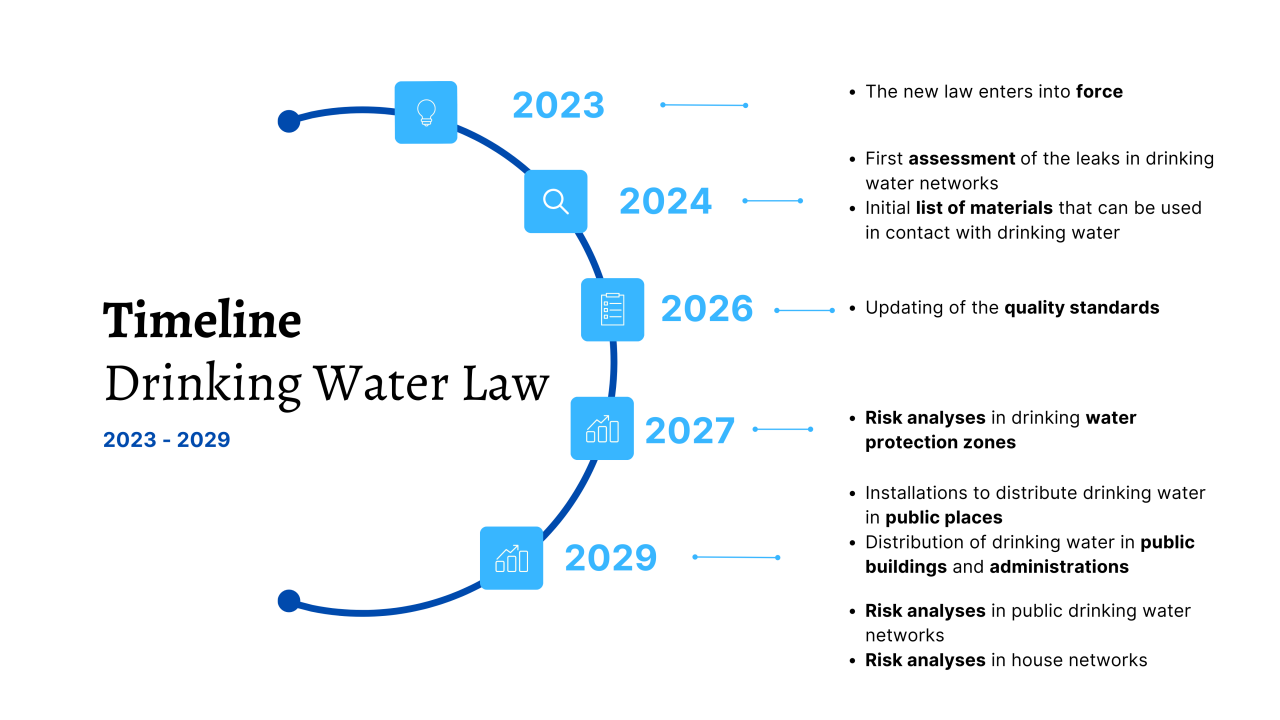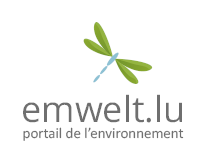Why a drinking water law
Reliable drinking water is a growing public concern, not only here in Luxembourg, but across Europe. Here in Luxembourg, regular consumption of tap water has doubled in the last 15 years.
For example, the right2water initiative collected about 1.8 million signatures in 2013. Among other things, this initiative is about better access to tap water for everyone. But it is also about preventing the liberalisation of water supply. Due to the great success of this petition, the European Commission has decided to amend the Drinking Water Directive of 1998.
The text of the directive was published on 23 December 2020. The aim of the new directive is to improve both the "right of water" ("droit de l'eau") and the "right to water" (droit à l'eau). With this text, we have transposed this directive into national legislation.
The Drinking Water Law is a good complement to the government's strategy to secure the long-term supply of drinking water. This strategy is based on 3 pillars, which are interrelated as follows:
- The protection of existing resources
- Saving water
- The development of new resources
What is drinking water?
The Drinking Water Law concerns drinking water. Generally speaking, drinking water can be understood as any tap water with which a citizen comes into contact. There are exceptions, which are explained in the text of the law in Article 3.
Who supplies my water from the tap?
The municipality supplies the citizens with their water. This is also stated in the Water Law of 19 December 2008, which is why citizens receive their water bill from the municipality.
Good to know: The drinking water supply cannot be liberalised in Luxembourg.
What are the most important points in the Drinking Water Law?
The new law replaces the Grand-Ducal Regulation of 7 October 2002, which used to regulate the quality of drinking water. A number of points of this regulation, especially the parameters defining the quality of drinking water, will remain.
The main points in the law are as follows:
- Define when and under which conditions we have access to drinking water in public places, public buildings, restaurants and canteens.
- The adaptation of the strict quality standards to the latest scientific findings.
- Preventively ensure that the water quality always meets the standards in the future as well
- Clarify which material may come into contact with drinking water
- Better information of the citizens
Transparent communication of analysis results and consumption: Citizens can consult the water quality in the various municipalities on the already existing website drenkwaasser.lu. In addition, in the future, municipalities will have to inform consumers of their water consumption in comparison to the average consumption, similar to the electric bill.

What responsibility do the municipalities bear?
- Supplying high-quality tap water up to the house connection
- Analysing and assessing water leaks in public networks
Providing information and advice to property owners and citizens
What responsibility do the citizens bear?
Property owners are responsible for ensuring the quality of drinking water in the household network.
Which ministries and administrations bear responsibility?
- The Ministry of the Environment, Climate and Sustainable Development and the Water management agency
- The Health Directorate of the Ministry of Health for "Human Health" and "Radioprotection"
The Luxembourg Veterinary and Food Administration (ALVA) of the Ministry of Agriculture, Viticulture and Rural Development for "Food security"

What is the "Drëpsi"?
Drinking water is the most controlled food product and meets the highest quality criteria. To ensure that this remains the case in the future, the municipalities are working on a Water Safety Plan that preventively records and controls all possible risks. The Drëpsi certificate rewards the municipalities and municipal associations that have made special efforts in this regard.
For more information about the Water Safety Plan and the Drëpsi, visit this website.
What are the most important due dates?

Good to know:
In Luxembourg, we can already carry out a risk analysis in drinking water protection zones and public networks today. And this despite the fact that the European directive only foresees this for 2027 and 2029 at the latest. In this respect, we as a country have already earned a "certificate of excellence".

